You’ll have to forgive any typos, because the massive neck brace I’m forced to wear after the tonal whiplash of the last two episodes makes it hard to type. There’s a lot I could say about this episode, one of the best in Gegege no Kitarou’s entire run, but a couple of thoughts are percolating foremost in my head:
First – I have unending admiration for what this reboot has done in terms of the Gegege no Kitarou franchise. To so thoroughly contemporize it without sacrificing any of Mizuki Shigeru’s core values is nothing less than a triumph of proportions rarely seen among anime and manga’s benchmark properties. I haven’t talked much about director Ogawa Kouji and writer Ohnogi Hiroshi, but they’ve done a masterful job here, reverential and groundbreaking at the same time.
And second – I can’t but wonder if the massive tonal shifts GGGnK 2018 engages in are something one should express reservations about. Does it matter that it whipsaws from irreverent satire to grim and dark social commentary with no preamble or buffer zone, as long as it does both extremes well? I don’t know the answer, honestly – I just know that this series cycles through genres like Ricky Jay shuffling cards.
Now, as to this episode itself, it would be no exaggeration to say that it once more touches on the issues that are at the very core of the Mizuki oeuvre, but probably more directly and personally than any of this series so far. There’s no question that the whole youkai vs. human dichotomy in this franchise is something of a stand-in for racism and nationalism in Japan, a subject that was very close to Mizuki’s heart as a wounded veteran who saw all the horrors of the war Japanese nationalism wrought, and then was forced to propagandize about them. But in bringing terrorism into the question, the 2018 version takes the franchise into very difficult and murky waters – something it’s never shied away from doing, which I deeply respect – though it must be said, the results have sometimes been regrettable.
Here’s thing: even if it sometimes gets it wrong – which from my perspective it certainly does – you have to admire the series’ staff for being utterly fearless even with a Sunday morning time slot. In Japan the default state with uncomfortable things – be they personal or cultural – is not to talk about them. Sometimes Gegege no Kitarou talks about them clumsily, because generally speaking Japanese popular entertainment doesn’t have much experience talking about these uncomfortable issues. But it’s still better to throw open the curtains and let the light shine in, even if it stings your eyes for a while.
In the micro sense, this episode focuses on Te-no-Me (Chafurin, another seiyuu legend debuting in this version) – literally “Hand’s Eye” – who has the ability to control others’ hands through his deep-seeing eyes. According to Medama-oyaji Te-no-Me is a harmless prankster at worst, not the kind of youkai to try and kill people. But people have died, seemingly by their own hands – and lawyer Mibu Youko (Mizusawa Fumie, making her first appearance in the franchise) is being targeted. She submits a request to the youkai mailbox for help, but she’s keeping a terrible secret from Kitarou even as he protects her from Te-no-Me.
It’s Nurarihyon who tips Kitarou off to the truth – Youko-san is a member of a Diet committee that’s secretly drafting an Anti-youkai bill (and secretly funding weapons research and paramilitary units to enforce it). It wouldn’t shock me if Nurarihyon was behind that bill in the first place knowing the divisions it would sow, but that’s pure speculation. What really interests me is Nurarihyon’s continued obsession with Kitarou. Occam’s Razor suggests that he simply sees Kitarou as the biggest threat to his plans, and maybe that’s all there is. But maybe he also sees Kitarou as a powerful potential ally and even respects him, and would genuinely like him to see the light.
In Nurarihyon’s eyes, To-no-Me (also interesting to speculate is whether his vision saw the conspiracy on its own, or Nurarihyon tipped him off) is a hero fighting for youkai justice (and a useful tool). But Kitarou is caught in the middle when he learns about the bill, especially when Youko pulls an anti-youkai weapon and shoots Te-no-Me with it. Youko, as it happens, was a rebel on the committee – aghast at the Prime Minister’s disrespect for legislative process and ambition to ride this issue to absolute power. But she also fears youkai, clearly. She’s caught in the middle too, as Kitarou realizes in the aftermath of the confrontation with Te-no-Me.
There are two quotes at the end which tie all this together in phenomenal fashion. First, Nezumi-otoko – caught between the world of man and youkai more literally than anyone else – declares “What a crock. The world is shades of grey – making everything black and white is a hassle.” And Medama-oyaji tells his son “Kitarou, the path you believe in is long and winding. But I know you can make it… to the other end of that path.” Elegantly, poetically, these two lines of dialogue capture Mizuki Shigeru’s worldview and the central dramatic pillar of this series. It may not go there every week, but when Gegege no Kitarou 2018 sets its sights at the highest level, it can go places few anime are able to reach.


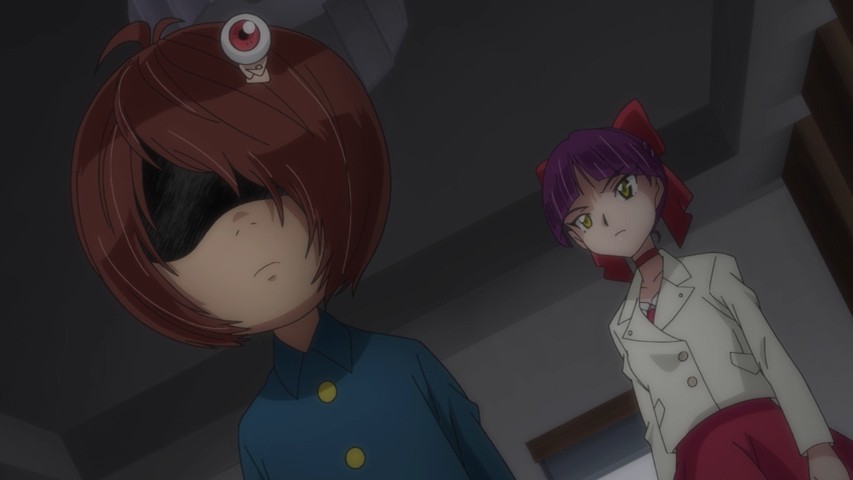
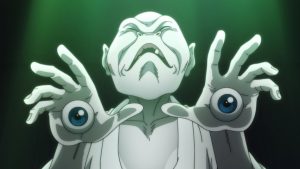
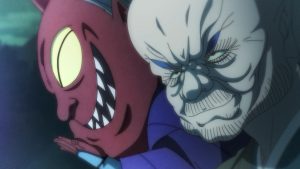
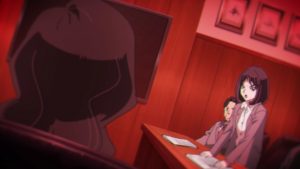
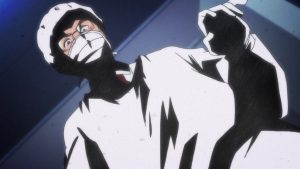
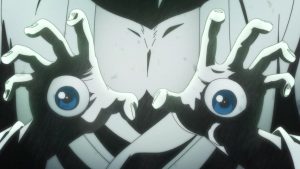


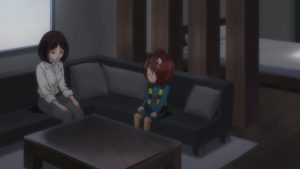
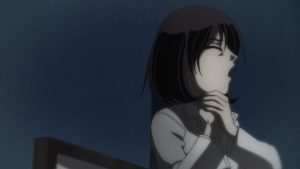
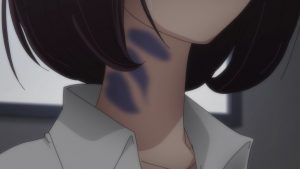
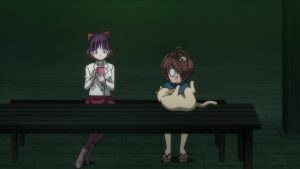

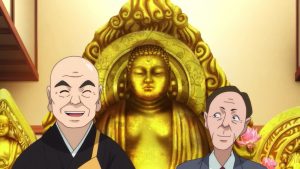
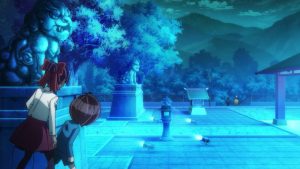
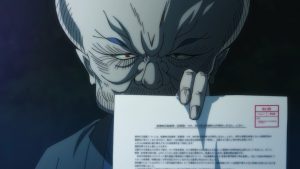
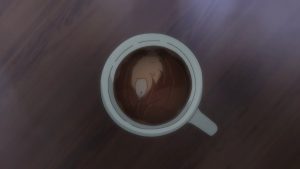
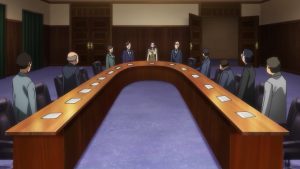
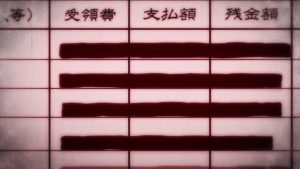
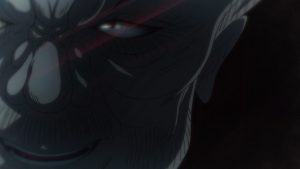
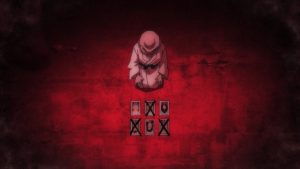
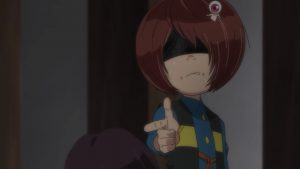
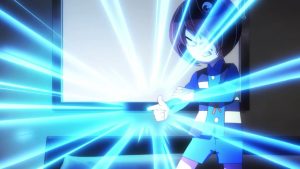
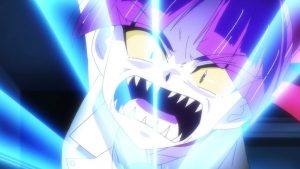
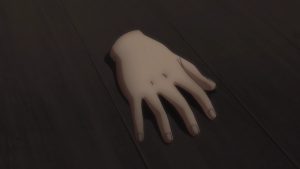
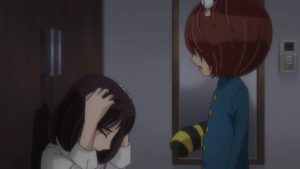
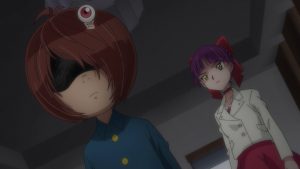

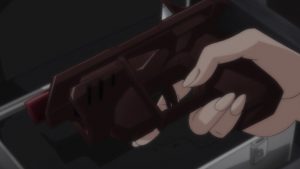
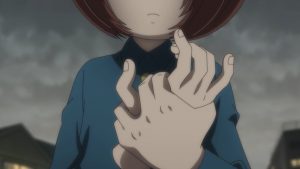
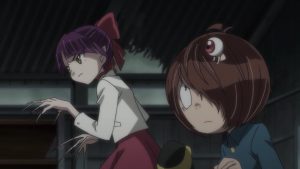
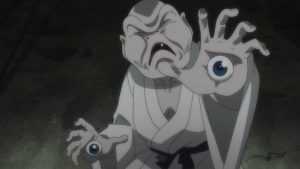
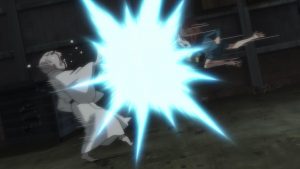
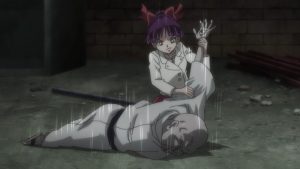
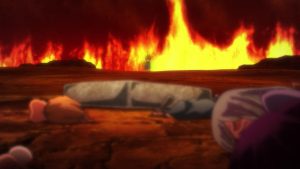
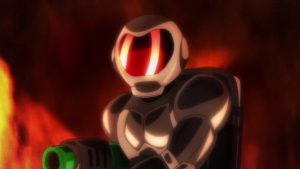

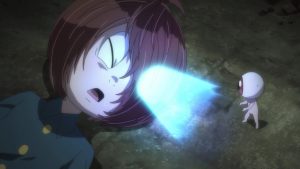
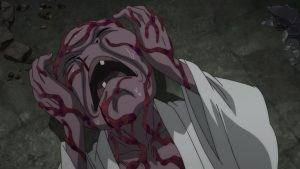
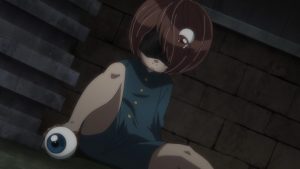
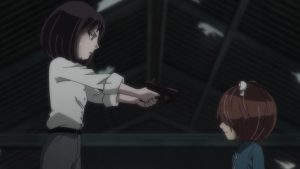

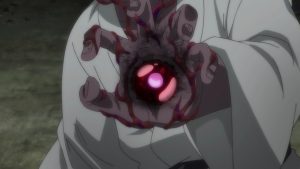
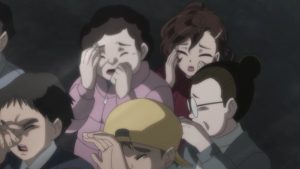
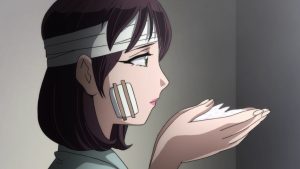

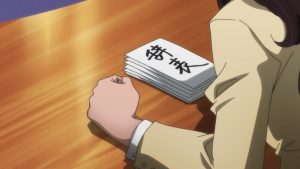
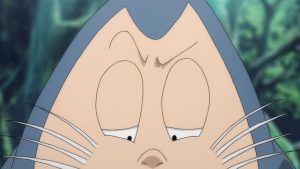
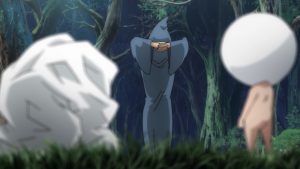

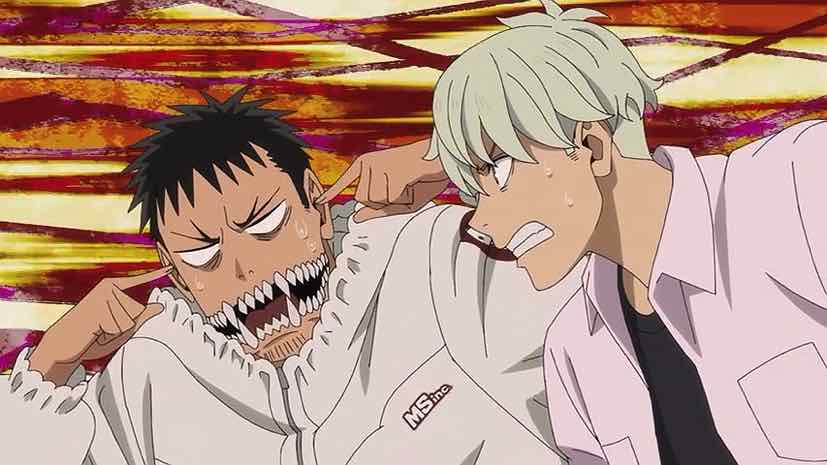
Deluxe
January 20, 2020 at 4:40 pmThe only reservation I have with the writing is how Kitaro often starts doubting the humans at the mere implication that they may have done something bad against youkai. We saw at the end of the Nanashi arc when Kitaro doubted Mana, which was completly out of character. We see it as well in this episode where Kitaro should immediatly know what Nurahiyon is up to and not trust a sigle word he says instead of going back to the lawyer lady to confirm his suspicions.
Nurahiyon is a formidable foe though, he manipulates both sides knowing exactly which buttons to push to further his personal agenda. He would make a terrific politician in our current world mindset of constant opposition and scapegoating.